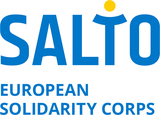About the Training and evaluation cycle (TEC)
WHAT IS THE TRAINING AND EVALUATION CYCLE (TEC)?
The training and evaluation dimension within the European Solidarity Corps aims at:
- Providing young participants with continuous guidance and support throughout their activity period. Such training and evaluation contributes to the education and development of each young person and facilitates contacts between participants, participating organisations and National Agencies / SALTOs (Support, Advanced Learning and Training Opportunities centres). It also helps resolve conflicts and prevent risks, and it provides a means of assessing the participants' experience. The training and evaluation cycle for participants complements other ongoing support offered by the participating organisations before and during the activity period;
- Providing organisations involved with the necessary support and tools to develop and carry out qualitative projects as well as the opportunity to exchange and network with other European Solidarity Corps actors. Quality is the main objective of preparation, training and evaluation. Given the diversity of countries, National Agencies, organisations holding aQuality Label and participants,there is a large degree of flexibility in the training format, whereas the quality indicators should be common to all training sessions
- What follows outlines the minimum that should be covered by a training/evaluation session. Trainers and organisers are of course free to add any country-specific or project-specific features they deem necessary or interesting for the people attending their training/evaluation event. The minimum quality standards clarify what can be expected to be achieved at a training/evaluation session, whether by the organisers of the event, the project supervisors, the mentors or the participantsthemselves. At the same time, concerning training of participants, the National Agencies, regional SALTOs and the participating organisations should as far as possible try to ensure that the training/evaluation opportunities offered to each participant are in line with their specific needs.Training providers can link the different training/evaluation stages while avoiding any overlaps in the content, and can thushelp create a continuous learning process for the participants before, during and following their activity period.
FOR WHOM IS THE TRAINING AND EVALUATION CYCLE?
- Participants in Volunteering, Traineeships and Jobs;
- Organisations holding a Quality Label.
TRAINING AND EVALUATION CYCLE FOR PARTICIPANTS –HOW DOES IT WORK?
The Training and Evaluation Cycle for participants consists of the following sessions:
- pre-departure training (only cross-border activities)–ensured by participating organisations;
- on-arrival training–ensured by National Agencies, SALTOsor participating organisations;
- mid-term evaluation (only activities of 6 months and longer)–ensured by National Agencies or SALTOs;
- annual European Solidarity Corps events–ensured by National Agencies or SALTOs
